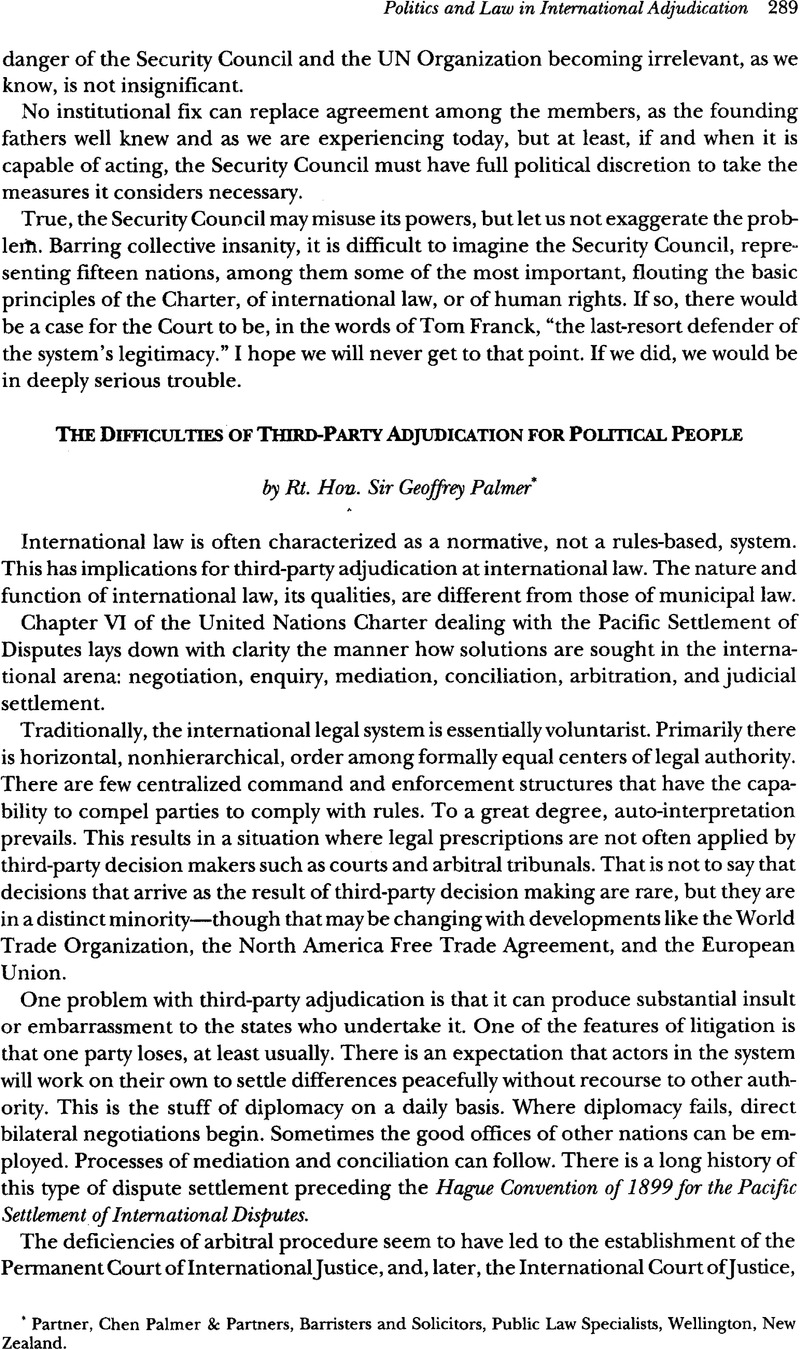Article contents
The Difficulties of Third-Party Adjudication for Political People
Published online by Cambridge University Press: 28 February 2017
Abstract

- Type
- Politics and Law in International Adjudication
- Information
- Copyright
- Copyright © American Society of International Law 2003
References
1 See Report of the New Zealand Delegation, United Nations Conference on International Organisation (External Affairs Publication No. 11) 103-04 (1945).
2 Nuclear Test Cases (Austl. v. Fr.), 1974 ICJ Rep. 253; (N.Z. v. Fr.), 1974 ICJ Rep. 457.
3 See United Nations Secretary-General: Ruling on the Rainbow Warrior Affair between France and New Zealand, July 5, 1986, reprinted in 26 ILM 1346 (1987) and 741. L.R. 256 (1987).
4 See Geoffrey De Quincy Walker, the Rule of Law—Foundation of Constitutional Democracy 23, 42 (1988).
5 See Jennings, Robert Y., The United Nations at Fifty—The International Court of Justice After Fifty Years, 89 AJIL 493, 504 (1995)CrossRefGoogle Scholar.
6 2 Lassa Oppenheim, International Law 57 (7th ed. 1963).
7 Schachter, Oscar, International Law in Theory and Practice—General Course in Public International Law, 178 Recueil Des Cours 9, 208 (Hague Academy of International Law ed., 1982)Google Scholar.
- 1
- Cited by


